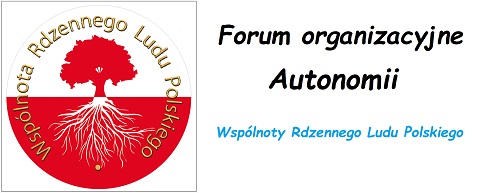16-01-2025, 12:49 PM
Welcome to the world of Islamic finance, where morally guided finance meets today's financial needs. In this article, we will explore the basics of Islamic finance, showcase its merits, and help you on ways to invest. Whether you’re a novice or just learning, this comprehensive guide will provide you valuable insights.
What is Islamic Finance?
Islamic finance is a financial system that is based on Sharia principles. It disallows usury, supports joint ventures, and focuses on value-driven projects. Unlike conventional finance, Islamic finance is grounded in moral guidelines.
Key Principles of Islamic Finance
Prohibition of Riba (Interest): Earning interest is prohibited in Islamic finance.
Risk-Sharing: Financial transactions should involve shared risks.
<a href=https://equalfinance.ru/>обращение сукук</a>
Asset-Backed Investments: Investments must be tied to physical properties.
Prohibition of Haram Activities: Engaging in businesses that are associated with alcohol, gambling, or other prohibited sectors is against the principles.
Popular Islamic Financial Instruments
Sukuk (Islamic Bonds): A trusted instrument for fundraising in Islamic finance.
Mudarabah (Profit-Sharing): A business arrangement where an investor provides capital and the other offers expertise.
Musharakah (Joint Venture): A collaborative investment model.
Istisna: A method for project financing.
Halal ETFs and Mutual Funds: Ethical funds catering to global markets.
Why Choose Islamic Finance?
Ethical Foundations: Invest with a system that adheres to moral principles.
Risk Mitigation: Enjoy shared risks and equitable gains.
Diverse Opportunities: Access a rich Sharia-compliant investments, from halal stocks to Sukuk.
Transparency: Islamic finance guarantees openness in transactions.
Halal Investment Options
<a href=https://equal-finance.com/>Oracle investments</a>
Halal Stocks: Invest in companies that meet Islamic principles.
Real Estate: A tangible and Sharia-compliant asset.
Sukuk: Invest in ethical bonds with predictable returns.
Digital Assets: Explore halal cryptocurrency and blockchain innovations.
Islamic Mutual Funds: Expand your portfolio with faith-based funds.
How to Start Investing in Islamic Finance
Educate Yourself: Understand the concepts of Islamic finance.
Choose a Halal Investment Platform: Use a certified app or platform that offers halal trading.
Consult an Islamic Financial Advisor: Seek advice from experts.
Review Investment Options: Consider available halal investment opportunities.
Start Small: Begin with smaller investments to understand the market.
Challenges and Misconceptions
Limited Awareness: Many investors are unaware of Islamic finance.
Access to Information: Finding trusted resources can be difficult.
Misinterpretations: Some confuse Sharia-compliant rules.
Geographical Constraints: Not all regions have Islamic banks.
Overcoming Barriers
Advocate for Islamic finance through media.
Develop user-friendly apps and tools.
Encourage cross-border investments.
Build regulations to facilitate Sharia-compliant systems.
<a href=https://islamicfinance.info/>Islamic bank in Russia</a>
Future of Islamic Finance
The growth of Islamic finance is notable. With rising interest, it is expected to thrive further. From halal ETFs to Sharia-compliant blockchain, the potential is promising.
Call to Action
Are you ready to explore the world of halal investing? Start your journey today with reliable platforms. Discover a world of faith-based opportunities.
What is Islamic Finance?
Islamic finance is a financial system that is based on Sharia principles. It disallows usury, supports joint ventures, and focuses on value-driven projects. Unlike conventional finance, Islamic finance is grounded in moral guidelines.
Key Principles of Islamic Finance
Prohibition of Riba (Interest): Earning interest is prohibited in Islamic finance.
Risk-Sharing: Financial transactions should involve shared risks.
<a href=https://equalfinance.ru/>обращение сукук</a>
Asset-Backed Investments: Investments must be tied to physical properties.
Prohibition of Haram Activities: Engaging in businesses that are associated with alcohol, gambling, or other prohibited sectors is against the principles.
Popular Islamic Financial Instruments
Sukuk (Islamic Bonds): A trusted instrument for fundraising in Islamic finance.
Mudarabah (Profit-Sharing): A business arrangement where an investor provides capital and the other offers expertise.
Musharakah (Joint Venture): A collaborative investment model.
Istisna: A method for project financing.
Halal ETFs and Mutual Funds: Ethical funds catering to global markets.
Why Choose Islamic Finance?
Ethical Foundations: Invest with a system that adheres to moral principles.
Risk Mitigation: Enjoy shared risks and equitable gains.
Diverse Opportunities: Access a rich Sharia-compliant investments, from halal stocks to Sukuk.
Transparency: Islamic finance guarantees openness in transactions.
Halal Investment Options
<a href=https://equal-finance.com/>Oracle investments</a>
Halal Stocks: Invest in companies that meet Islamic principles.
Real Estate: A tangible and Sharia-compliant asset.
Sukuk: Invest in ethical bonds with predictable returns.
Digital Assets: Explore halal cryptocurrency and blockchain innovations.
Islamic Mutual Funds: Expand your portfolio with faith-based funds.
How to Start Investing in Islamic Finance
Educate Yourself: Understand the concepts of Islamic finance.
Choose a Halal Investment Platform: Use a certified app or platform that offers halal trading.
Consult an Islamic Financial Advisor: Seek advice from experts.
Review Investment Options: Consider available halal investment opportunities.
Start Small: Begin with smaller investments to understand the market.
Challenges and Misconceptions
Limited Awareness: Many investors are unaware of Islamic finance.
Access to Information: Finding trusted resources can be difficult.
Misinterpretations: Some confuse Sharia-compliant rules.
Geographical Constraints: Not all regions have Islamic banks.
Overcoming Barriers
Advocate for Islamic finance through media.
Develop user-friendly apps and tools.
Encourage cross-border investments.
Build regulations to facilitate Sharia-compliant systems.
<a href=https://islamicfinance.info/>Islamic bank in Russia</a>
Future of Islamic Finance
The growth of Islamic finance is notable. With rising interest, it is expected to thrive further. From halal ETFs to Sharia-compliant blockchain, the potential is promising.
Call to Action
Are you ready to explore the world of halal investing? Start your journey today with reliable platforms. Discover a world of faith-based opportunities.


